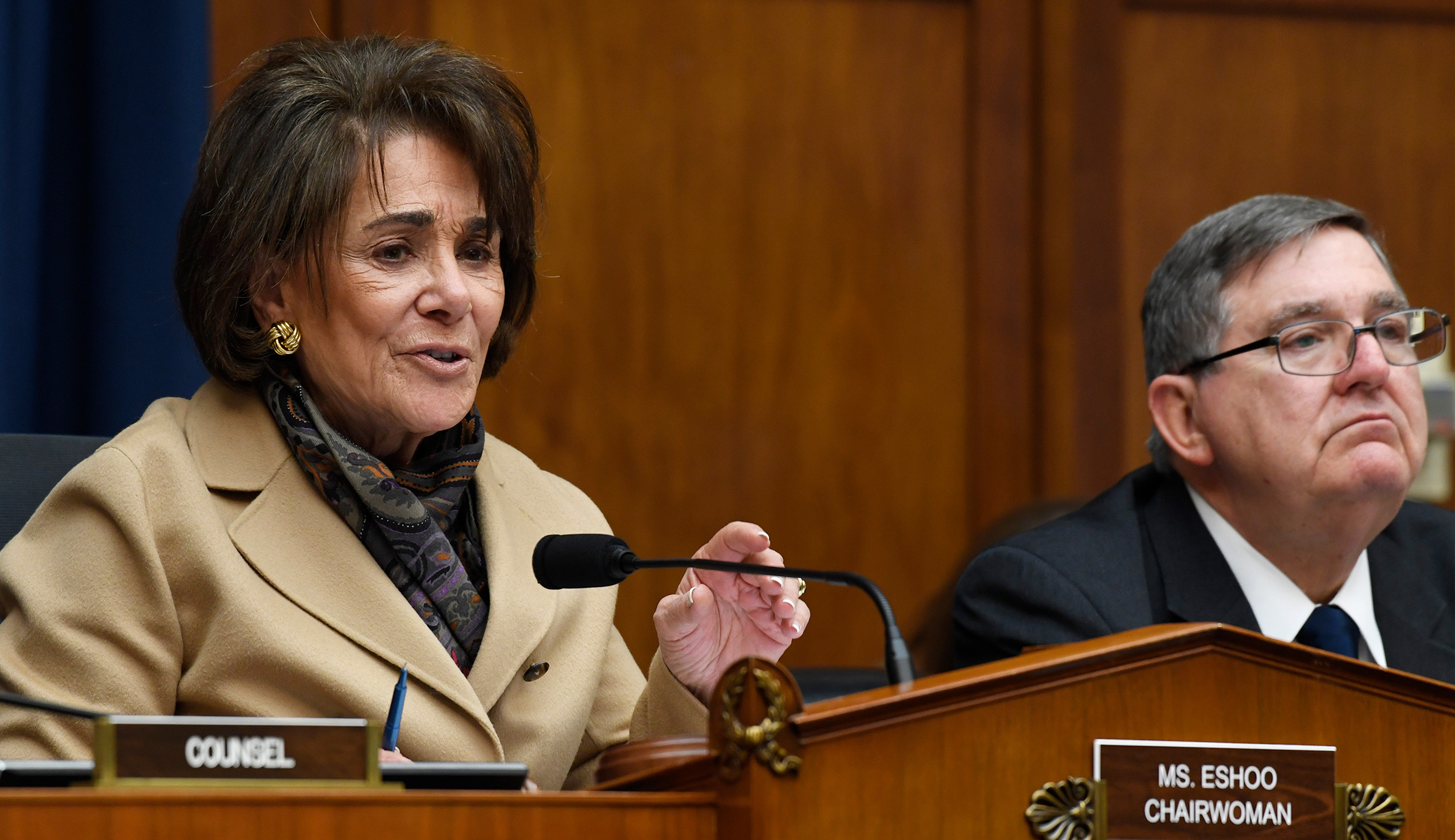House and Senate lawmakers are preparing legislation to address the growing crisis in Ukraine, and it’s poised to divide lawmakers in both parties.
The House could vote as early as this week on a Ukraine defense measure that may be too weak for some Republicans but could turn off the most liberal faction of the Democratic caucus.
The bill, authored solely by Democrats, would impose significant sanctions on Russia, but only if President Vladimir Putin invades Ukraine as analysts predict is likely now that thousands of Russian troops and tons of military equipment are amassed on the border.
The bill would sanction the Nord Stream 2 gas pipeline to Germany and would sanction Putin, Russian financial institutions, and other Russian entities in the event of an invasion.
“This legislation would impose significant consequences on Russia, both financially and otherwise, and Congress stands ready to act should President Putin continue to pursue its provocative military buildup on Ukraine’s borders,” said House Foreign Affairs Committee Chairman Gregory Meeks, a New York Democrat.
On the Senate side, Democrats are scouring for GOP support that would be required to advance a similar measure, which Democrats hope will serve as a deterrent to Putin against a full-scale invasion.
But lawmakers are divided on how the United States should respond.
Many top Republicans believe the U.S. should take action now to deter Putin rather than wait to see whether Putin will invade.
Secretary of State Antony Blinken said the U.S. provided Moscow with a diplomatic solution in a written response to Putin’s demands that NATO withdraws troops and weapons from Eastern Europe and bar Ukraine from joining NATO.
“Right now, the document is with them, and the ball is in their court,” Blinken said.
Republicans don’t want to wait for Putin’s next move, arguing that the U.S. should impose serious sanctions now, including steps to block Russia’s $11 billion pipeline project.
“I’d start first with Nord Stream 2 immediately,” Idaho Sen. Jim Risch, who is the top Republican on the Senate Foreign Relations Committee, told Fox News. “Democrat friends are on board if and when [an invasion] takes place. I’m saying we should move ahead of time.”
Risch has paired with the top Republican on the House Foreign Affairs panel, Rep. Michael McCaul of Texas, over legislation that would immediately stop the Nord Stream 2 pipeline and provide a significant and immediate increase in support for the Ukrainian military, including funding for weapons and training.
In the Senate, legislation requires 60 votes to advance and move toward final passage, which means the evenly split Senate will have to come to some compromise on the Ukraine defense legislation.
It will likely require Democrats, who control a bare majority, to add stricter provisions to pick up enough GOP support.
New Jersey Sen. Bob Menendez, the chairman of the Senate Foreign Relations Committee, said Thursday that he is “working on a path forward to get Senate Republican support for our efforts and am optimistic Congress will impose steep consequences if Putin makes the mistake of re-invading Ukraine.”
On the House side, Speaker Nancy Pelosi will have to corral her Democrats into supporting whatever legislation Menendez can get through the Senate.
The California Democrat could run into resistance from the party’s liberal anti-war faction, which is already concerned the Democratic version of the Ukraine defense legislation may edge the U.S. into another foreign conflict.
The U.S. has provided Ukraine with $200 million in defense assistance, and the latest legislation would dispatch an additional $500 million.
Most Democrats want nothing to do with endorsing another overseas conflict, and many spend the last few years battling to end the war in Afghanistan and roll back the war authorization powers that they believe the previous three presidents used too broadly to conduct military operations overseas.
Rep. Pramila Jayapal, a Washington Democrat who leads the sizable House Progressive Caucus, paired with Peace and Security Task Force Chairwoman Barbara Lee, a California Democrat, in signaling they may not support the Ukraine defense bill Pelosi hopes to usher to the floor as soon as next week.
While President Joe Biden has promised no U.S. troops will be deployed inside Ukraine, the Defense Department has indicated that 8,500 troops are on heightened alert for deployment, some in the “near term,” according to Biden, to back up NATO forces in the region.
Top liberal House Democrats are unhappy with the pace of U.S. involvement so far.
“We have significant concerns that new troop deployments, sweeping and indiscriminate sanctions, and a flood of hundreds of millions of dollars in lethal weapons will only raise tensions and increase the chance of miscalculation. Russia’s strategy is to inflame tensions,” Lee and Jayapal said in a joint statement. “The United States and NATO must not play into this strategy. We call upon our colleagues to allow the administration to find a diplomatic way out of this crisis.”
But diplomatic efforts to end the brewing conflict have so far been unsuccessful.
Kremlin officials said Thursday that they were not optimistic after the latest exchange.
The U.S. refused to make concessions to Russia’s demand that NATO pull back from Eastern Europe and reject Ukraine’s entry into the organization.
“As for the major aspects of the draft agreements that we earlier presented to other parties, we can’t say that they took our concerns into account or showed any readiness to take our concerns into consideration,” Kremlin spokesman Dmitry Peskov told reporters, according to the Russian news agency TASS.






